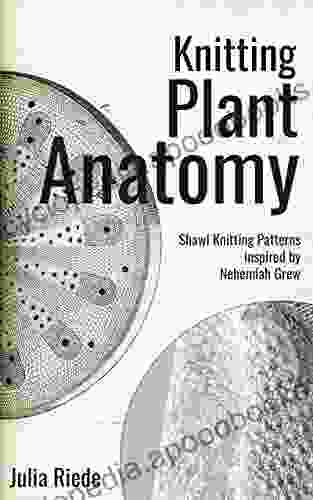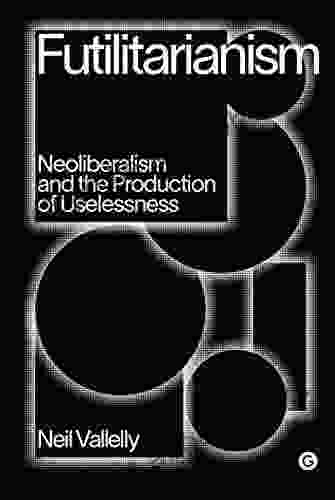Neoliberalism and the Production of Uselessness: A Critical Examination

4.8 out of 5
| Language | : | English |
| File size | : | 1224 KB |
| Text-to-Speech | : | Enabled |
| Screen Reader | : | Supported |
| Enhanced typesetting | : | Enabled |
| Word Wise | : | Enabled |
| Print length | : | 248 pages |
In his seminal work, "Neoliberalism and the Production of Uselessness," Eric A. Stanley embarks on a rigorous exploration of the pervasive consequences of neoliberal policies on contemporary society. This thought-provoking book delves into the ways in which neoliberalism, as an ideology and a set of economic practices, has led to the creation of a vast and growing population of "useless" individuals.
Defining Uselessness
Stanley begins by defining uselessness not simply as unemployment or labor market exclusion but as a multifaceted condition characterized by social, cultural, and political dimensions. He argues that neoliberalism has fostered a society in which the value of individuals is increasingly measured by their productivity and profitability within a capitalist system.
Neoliberal Policies and the Production of Uselessness
The book meticulously examines how key neoliberal policies have contributed to the production of uselessness. These policies include:
- Privatization: The transfer of public assets and services to private entities has led to job losses, decreased social mobility, and the erosion of safety nets.
- Deregulation: The reduction of government regulations on businesses has weakened labor protections, increased worker exploitation, and made employment more precarious.
- Free Trade: The lowering of trade barriers has accelerated globalization, leading to job outsourcing and increased competition for low-wage labor.
- Austerity Measures: Government spending cuts in response to economic downturns have disproportionately impacted social programs, exacerbating unemployment and poverty.
The Consequences of Uselessness
Stanley vividly depicts the devastating consequences of uselessness on individuals and society as a whole. Uselessness breeds poverty, social exclusion, and mental and physical health problems. It erodes social cohesion, undermines democracy, and perpetuates cycles of despair.
Challenging the Myth of Meritocracy
The book challenges the prevailing myth of meritocracy, which suggests that individuals are rewarded based on their talent and hard work. Stanley argues that neoliberalism has created a system where success is often determined by factors beyond individual control, such as socioeconomic background, access to education, and luck.
Alternatives to Neoliberalism
While exposing the flaws of neoliberalism, Stanley also offers glimpses of hope by exploring alternative economic and social models that prioritize human well-being over profit maximization. He advocates for policies that promote job creation, reduce income inequality, strengthen labor protections, and expand access to essential services.
Eric A. Stanley's "Neoliberalism and the Production of Uselessness" is a groundbreaking work that provides a critical analysis of the devastating impact of neoliberal policies on our society. It challenges the dominant narrative of meritocracy, exposes the roots of uselessness, and offers a compelling vision for a more just and equitable future. This book is an essential read for anyone seeking to understand the complex dynamics of contemporary capitalism and its consequences for human well-being.
Call to Action
Join the conversation about neoliberalism and the production of uselessness. Share your thoughts and experiences in the comments section below. Together, we can work towards creating a society that values all individuals, regardless of their productivity or market value.
Book Free Download
To delve deeper into the groundbreaking insights of "Neoliberalism and the Production of Uselessness," Free Download your copy today from Goldsmiths Press.
4.8 out of 5
| Language | : | English |
| File size | : | 1224 KB |
| Text-to-Speech | : | Enabled |
| Screen Reader | : | Supported |
| Enhanced typesetting | : | Enabled |
| Word Wise | : | Enabled |
| Print length | : | 248 pages |
Do you want to contribute by writing guest posts on this blog?
Please contact us and send us a resume of previous articles that you have written.
 Book
Book Novel
Novel Page
Page Chapter
Chapter Text
Text Story
Story Genre
Genre Reader
Reader Library
Library Paperback
Paperback E-book
E-book Magazine
Magazine Newspaper
Newspaper Paragraph
Paragraph Sentence
Sentence Bookmark
Bookmark Shelf
Shelf Glossary
Glossary Bibliography
Bibliography Foreword
Foreword Preface
Preface Synopsis
Synopsis Annotation
Annotation Footnote
Footnote Manuscript
Manuscript Scroll
Scroll Codex
Codex Tome
Tome Bestseller
Bestseller Classics
Classics Library card
Library card Narrative
Narrative Biography
Biography Autobiography
Autobiography Memoir
Memoir Reference
Reference Encyclopedia
Encyclopedia Jenifer Leclair
Jenifer Leclair Ray Mcallister
Ray Mcallister Elliott Lewis
Elliott Lewis Vasileios Yfantis
Vasileios Yfantis Thomas Knauer
Thomas Knauer Kyle Scott
Kyle Scott Ping Xia
Ping Xia J Christine
J Christine Barbara L Murphy
Barbara L Murphy Tema Okun
Tema Okun Isobelle Carmody
Isobelle Carmody Suzanne Mettler
Suzanne Mettler Stephen Lockyer
Stephen Lockyer Davidsbeenhere
Davidsbeenhere Sri Srimad Bhaktivedanta Narayana Gosvami...
Sri Srimad Bhaktivedanta Narayana Gosvami... Aleta Medea
Aleta Medea Roulhac Toledano
Roulhac Toledano Spencer Gordon
Spencer Gordon Catherynne M Valente
Catherynne M Valente Hope Edelman
Hope Edelman
Light bulbAdvertise smarter! Our strategic ad space ensures maximum exposure. Reserve your spot today!

 Danny SimmonsUnveiling the Art of Shawl Knitting Inspired by Nehemiah Grew's Botanical...
Danny SimmonsUnveiling the Art of Shawl Knitting Inspired by Nehemiah Grew's Botanical... Chad PriceFollow ·11.2k
Chad PriceFollow ·11.2k Neal WardFollow ·15.6k
Neal WardFollow ·15.6k Clayton HayesFollow ·8.2k
Clayton HayesFollow ·8.2k David PetersonFollow ·14.2k
David PetersonFollow ·14.2k Simon MitchellFollow ·7.4k
Simon MitchellFollow ·7.4k Douglas AdamsFollow ·7k
Douglas AdamsFollow ·7k Harvey BellFollow ·5.8k
Harvey BellFollow ·5.8k Matt ReedFollow ·12.9k
Matt ReedFollow ·12.9k

 Jacob Hayes
Jacob HayesUnlock the Power of Microsoft Word: A Comprehensive Guide...
Microsoft Word is a widely used word...

 Hunter Mitchell
Hunter MitchellAndrea Carter and the Price of Truth: A Thrilling...
Get ready for an unforgettable...

 Ivan Turner
Ivan TurnerTrading Jeff and His Dog: An Unforgettable Adventure of...
Get ready for an emotional rollercoaster...

 Langston Hughes
Langston HughesGo Viral TikTok: The Ultimate Guide to Gaining 100K...
TikTok has emerged as a social...

 Ibrahim Blair
Ibrahim BlairUnveil the Enchanting Realm of Short Fiction: Dive into...
Delve into a Literary Tapestry of...

 Tennessee Williams
Tennessee WilliamsUnveil the Enchanting World of Elizabeth Barrett...
A Poetic Tapestry of Love, Loss, and...
4.8 out of 5
| Language | : | English |
| File size | : | 1224 KB |
| Text-to-Speech | : | Enabled |
| Screen Reader | : | Supported |
| Enhanced typesetting | : | Enabled |
| Word Wise | : | Enabled |
| Print length | : | 248 pages |










